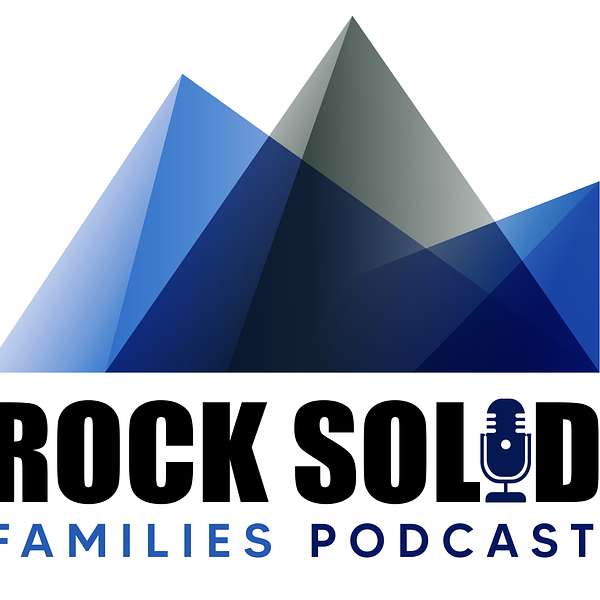
Rock Solid Families
Rock Solid Families
I Cant Work With My X - Ep 310
Use Left/Right to seek, Home/End to jump to start or end. Hold shift to jump forward or backward.
Anyone that has ever been a parent knows that parenting can be challenging. Sometimes half the battle is between the parents and not the kids. But, if we want to make it even more challenging, add a divorce or separation into the picture. Yes, now parenting goes to a new level of challenging.
We often see what is called Parental Alienation between parents and their kids. One parent intentionally or not, making it more difficult for the other parent to be involved in their kid's life. This can be blatantly obvious or even more subtle. The problem is that it causes damages to all the parties involved. Nobody wins when this tactic is used.
Cooperation and unity are the keys to successful parenting whether divorced or not. Having both adults in the child's life coming to common values and expectations and then enforcing them when under the care of either parent. This alleviates the confusion and the process of raising the child is more clear on everyone's part.
Co-Parenting After Divorce: Strategies for Success
Ephesians 4:3 - Make every effort to keep the unity of the Spirit through the bond of peace.
Divorce can be a challenging experience for any family, but it can be especially difficult when co-parenting arrangements are involved. When two adults are not able to communicate effectively or work together amicably, the situation can become even more complex. However, there are several strategies that can help co-parents navigate these challenges and create a positive environment for their children.
One of the most effective strategies for co-parenting after divorce is to prioritize the needs of the children. This means putting aside personal differences and focusing on what is best for the children's well-being. Research has shown that children of divorced parents who have a positive relationship with both parents tend to have better emotional and social outcomes (Pruett & Pruett, 2009).
Another important strategy is to establish clear and consistent communication channels. This can be done through regular meetings, emails, or phone calls. It is important to maintain a respectful and professional tone, even when disagreements arise. Open and honest communication can help to minimize misunderstandings and resolve conflicts more effectively. When conflict is high, most courts recommend a safe and effective communication tool, Our Family Wizard, to communicate necessary messages. The messages are saved and visible to the courts. This helps to keep everyone accountable with our messaging.
It is also crucial to develop a parenting plan that outlines the specific details of custody, visitation, and decision-making responsibilities. This plan should be clear, concise, and legally binding. It is important to seek legal advice to ensure that the plan is fair and enforceable.
In addition to these strategies, co-parents may also benefit from seeking professional help. A therapist or counselor can provide guidance and support in developing effective communication skills and resolving conflicts. They can also help to address any underlying emotional issues that may be impacting the co-parenting relationship.
If you need help in this area please contact us at https://rocksolidfamilies.org
#Rocksolidfamilies, #familytherapy, #marriagecounseling, #parenting, #faithbasedcounseling, #counseling, #Strongdads, #coaching, #lifecoach, #lifecoaching, #marriagecoaching, #marriageandfamily, #control, #security, #respect, #affection, #love, #purpose, #faith, #affairs, #infidelity